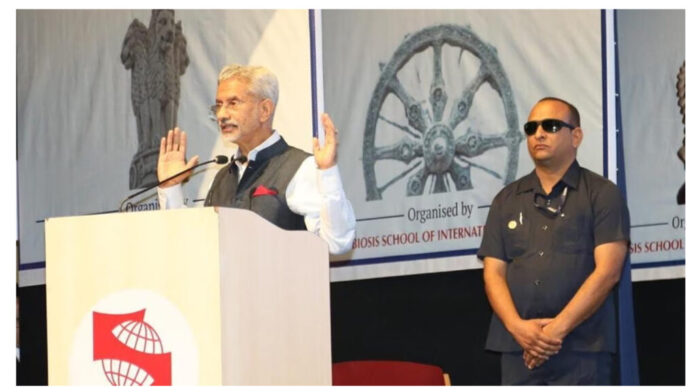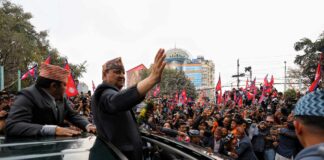\
PUNE: External Affairs Minister S Jaishankar said there was a need for India to embrace “international relations with Indian characteristics.” Speaking on Saturday at an international relations conference in Pune, Jaishankar stated that the “rebalancing” of global power towards India and developing countries as reflected through this year’s G20 suggested that Indians needed to rethink the prisms and terminologies by which they viewed the world.
“The G20 is a statement for the political rebalancing of the world. The premier gathering of the world was the G7 but around 15 years ago when there was a global financial crisis, the G7 could not handle the problem. They need to bring in other countries. So, the G7 though it exists, has got replaced by the G20.”
The external affairs minister said that apart from the economic rebalancing Indians also needed to bring political rebalancing by which the world could be viewed. Pointing out that over the last 300 years, western hegemonism has ensured intellectual domination, Jaishankar also added that the problem lay with many Asian countries, including India.
“Many Asian countries associate modernisation with westernisation, because in their assessment their cultures failed them when it came to resisting the West. They have sought to put their own cultures behind them and so today there is a conscious or unconscious imbibing of western products as a prescription of progress. In fact, if you looked at us post-Independence, there was a sense among Indians that my past is behind me, I am now going to a new phase.”
Apart from imbibing Indian characteristics, Jaishankar also pointed out that there needed to be much more critical thinking regarding the past.
“We need to look at policies from the point of view of the road not taken. We need to look at critics of the events that were happening in Pakistan and frankly critics of our policy on Kashmir You have a minister of the first cabinet who leaves the cabinet because he has profound differences on our Pakistan policy That is Dr Syama Prasad Mukherjee. He cautions Nehru on going to the UN on Kashmir. Such critics are most important because they were there at the time.”
Jaishankar agreed that there would be critics who would dub this exercise “revisionist” and “nationalistic,” but he argued that for India, unlike the West, nationalism was not a pejorative term.
“Today we don’t want to say we are uninvolved, but we don’t want to say we are part of an alliance either. This year, two words that have made the biggest impact is Global South. Even people who are against the Global South use the words Global South. These are the contestations we need to put in place because when we go on the global stage, we need to go there with cards in our hands.”
“Bharat needs its narrative and it needs its narrative not just for itself. If we are to be one of the voices of the Global South, if we are to see a world of the next fifty years be far different from the world of the last 50 years we need to look at the cultural and historical traditions, not just politics and economics.”



 Loading IntenseDebate Comments...
Loading IntenseDebate Comments...

